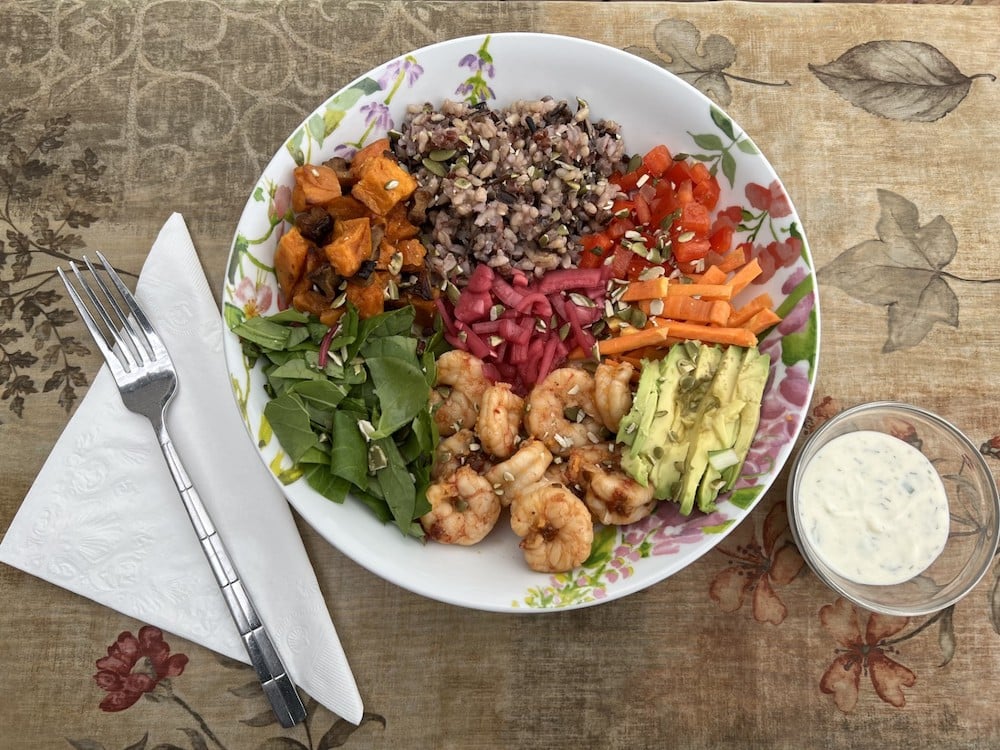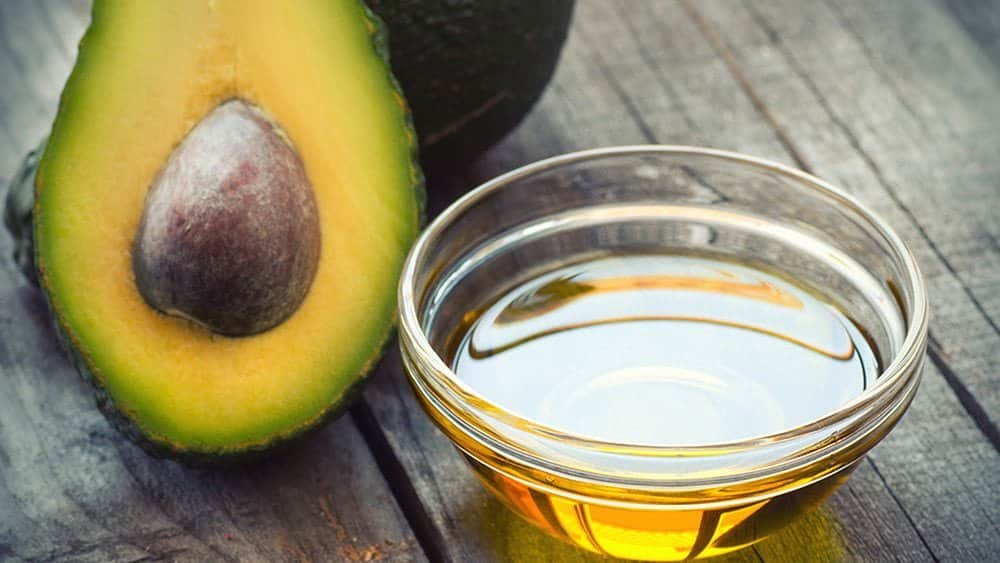
Share this post!
Have you ever found yourself at the grocery store feeling completely overwhelmed by all the different types of oils available? With the multitude of opinions and the plethora of holistic health information available to the public, it can feel almost impossible to determine which foods are truly supportive of our health.
The same is true when it comes to culinary fats. Besides the type and brand, there are other factors to consider when determining which fats to use for which purpose. These factors are heat, light, and oxygen. By being selective with the cooking fats we use every day, we can significantly impact the body’s inflammatory load.
What follows is a guide for our top five favorite oils, when to use them, and how they can benefit your health. In Part 2 of this nutritional guide, we’ll discuss which oils to avoid and why.
OILS TO USE, HOW TO USE AND STORE, HELPFUL TIPS
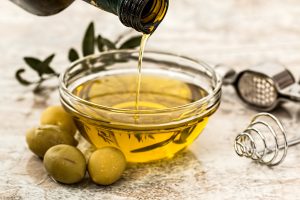 Extra Virgin Olive Oil
Extra Virgin Olive Oil
- Heat: Low or None. Olive oil is a mostly monounsaturated fat, which makes it is less susceptible to damage by heat, light and oxygen exposure than vegetable oils. People with inflammatory conditions are discouraged from heating any oils, including olive.
- How to Use: For salad dressings, drizzling over cooked vegetables, low heat sautéing
- How to Store: In a dark bottle, in a cool place, and away from direct light
- Benefits: Rich in polyphenols, or antioxidant compounds with anti-inflammatory properties, olive oil can raise HDL cholesterol and lower the amount of oxidized LDL cholesterol circulating in the bloodstream.
- Buying Tips: Choose olive oil labeled Extra Virgin for the highest quality.
 Coconut Oil
Coconut Oil
- Heat: Medium (for virgin) to Medium-High (for refined)
- Refined Coconut vs. Unrefined Virgin Coconut Oil
- Refined coconut oil is neutral in taste and aroma. The smoke point is 365 F. Look for brands that steam-refine, as many brands refine with harsh chemicals. Use when cooking at medium-high temperatures and baking.
- Unrefined virgin coconut oil has that rich, nutty, tropical smell and taste. The smoke point is 280 F.
- Benefits: Coconut oil is 86% saturated fat, making it highly stable to heat. It is composed of Medium Chain Fatty Acids which are burned rapidly by the liver and used to create energy rather than store fat. Coconut oil is easy to digest and rich in lauric acid, which is an anti-microbial, anti-fungal, and anti-viral fatty acid also found in mother’s milk.
- How to Store: Does not need to be refrigerated, though refrigeration will extend its shelf life.
- Buying Tips: Here’s a list of quality coconut oils.
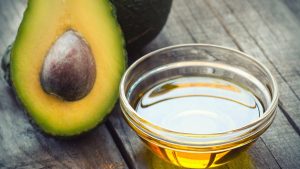 Avocado Oil
Avocado Oil
- Heat: Low to Medium
- How to Use: Low to medium sautéing, drizzled over vegetables, in salad dressings, marinades, and homemade mayonnaise.
- How to Store: Avocado oil is best stored in the fridge, in a dark bottle.
- Benefits: Loaded with Vitamin E, avocado oil strengthens the skin, aids in detoxification, and improves immunity. It has also been found to boost the absorption of carotenoids from food and lower blood pressure.
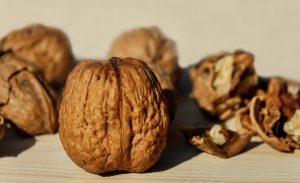 Walnut Oil
Walnut Oil
- Heat: None
- How to Use: In salad dressings, drizzled over vegetables, cooked grains, or yogurt with fruit.
- How to Store: In the fridge.
- Benefits: Walnut Oil is one of the few plant oils that offer a healthy omega-6 to omega-3 ratio. It is high in antioxidants, specifically ellagic acid. This antioxidant has been found to detoxify substances linked to the development of certain cancers. Walnut oil is also rich in manganese, copper and melatonin. It has been known to improve blood circulation, lower heart disease risk, and aid in anti-aging.
- Buying Tips: Buy smaller quantities of high-quality, cold-pressed walnut oil, as its shelf life is short.
 Ghee
Ghee
- Heat: High
- How to Use: Cooking at high temperatures (sauté, fry, same uses as butter).
- How to Store: In a dark cupboard, ghee is shelf-stable for up to 3 months and will keep up to a year in the fridge.
- Benefits: Ghee is clarified butter, which means it’s been simmered and skimmed until nearly all milk solids (and lactose) have been removed. Composed almost entirely of fat, ghee is also high in Vitamins A, E, and D. The rich variety of fats in ghee, especially Omega-3 fatty acids, can provide a healthy boost to the heart.
- Buying Tips: Choose grass-fed ghee (or grass-fed butter if making your own ghee) to maximize the benefits listed above.
Health Impacts of Oxidized Oils
Dr. Mercola states, “Anytime you cook food, you run the risk of creating heat-induced damage. The oils you choose to cook with must be stable enough to resist chemical changes when heated to high temperatures, or you run the risk of damaging your health. One of the ways vegetable oils can inflict damage is by converting your good cholesterol into bad cholesterol—by oxidizing it.
When you cook with polyunsaturated vegetable oils (such as canola, corn, and soy oils), oxidized cholesterol is introduced into your system. As the oil is heated and mixed with oxygen, it goes rancid. Rancid oil is oxidized oil and should NOT be consumed—it leads directly to vascular disease.”
Stay tuned for Part 2 of our Nutritional Oils Guide, which is all about oils to avoid! Also, check out The Safest Ways to Cook with Healthy Fats for more information on the smoke points of different oils and Where Have the Trans Fats Gone and What Has Replaced Them? for an in-depth look at other fats in our food.
About the author: Kelly Pender is an admissions counselor at Nutrition Therapy Institute. She is a Registered Yoga Instructor and leads monthly Yoga & Hiking workshops.
Images: Lecic/Shutterstock.com; Image by Dana Tentis is free for use by Pixabay; Image by Pixabay is free for use by Pexels; Image by Couleur is free for use by Pixabay; Image by Megumi Nachev is free for use by Unsplash
Share this post!




